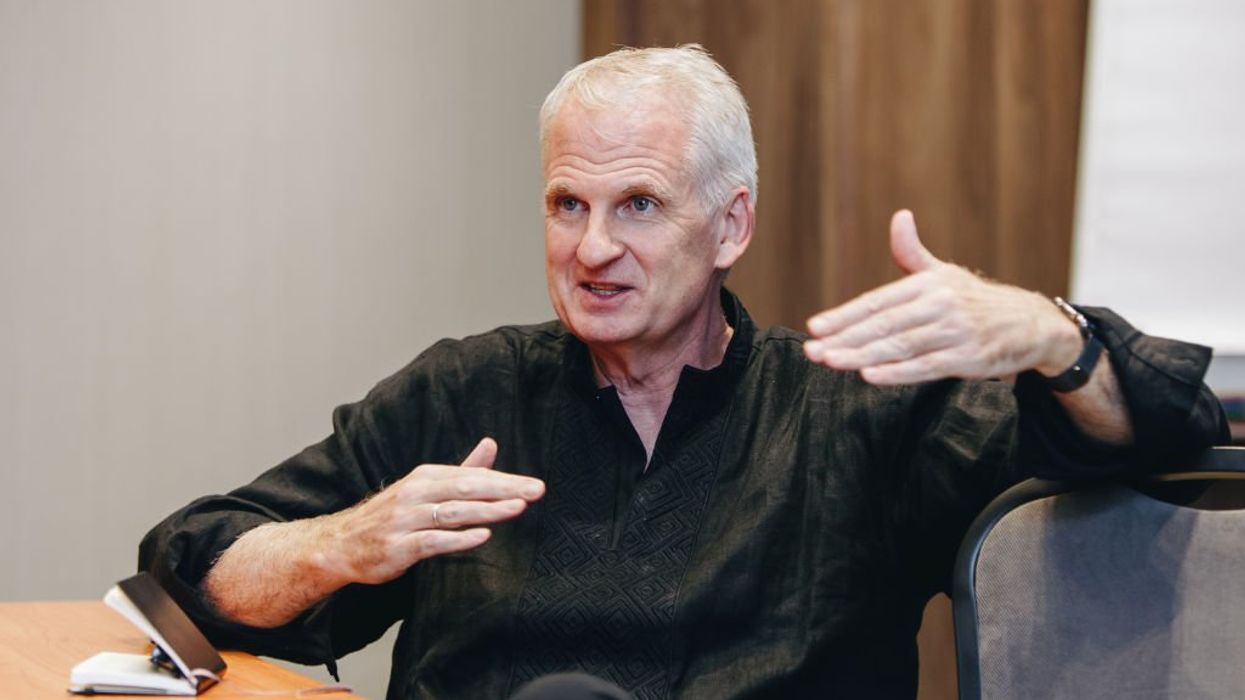
© 2025 Blaze Media LLC. All rights reserved.
What a Bible Scholar Believes About the Old Testament That Led Him to an Early — and Forced — Retirement
August 27, 2014
"Psalm 23, read as a fulfilled messianic prophecy, tells the story of Jesus Christ from the perspective of God's shepherd-like care for him..."
This story has been updated to clarify details surrounding the dispute.
--
A veteran Old Testament scholar has reportedly been forced into early retirement after the seminary he works for questioned some of his biblical interpretations and determined that they are "inconsistent with the teaching of scripture" embraced by the institution.
Westminster Theological Seminary in Glenside, Pennsylvania, put out a statement in June affirming that Dr. Douglas Green, professor of biblical theology and Old Testament, would be retiring effective October 1, 2015.
"While Dr. Green respectfully disagrees with this decision of the Board, he acknowledges the governing authority of the Trustees to lead Westminster in fulfilling the institution’s mission as a confessional Reformed seminary," read the statement announcing his impending retirement. "We thank Dr. Green for twenty-two years of exemplary service as a member of the faculty."
 Photo credit: Shutterstock
Photo credit: Shutterstock
Brandon Withrow, a professor of history and religious studies at Winebrenner Theological Seminary, recapped some of Green's ideas about the Old Testament as follows:
Green says that the Bible -- and books in it like Genesis, for example -- should be read in two ways: Firstly, read "Genesis on its own terms," as an "unfolding story," meaning, "as an Israelite book, and not (yet) a Christian book!" The second way means letting "the Jesus-ending of Israel's story reshape the way you interpret" Genesis, which "is the way you read Genesis as a Christian book." […]His way of reading the Bible, says Westminster, "creates a disunity between the human and divine authors," and is "inconsistent" with their doctrinal standards. They think he should only read the Bible as a Christian book, never resulting in a disagreement between the Old and New Testaments.
And Christianity Today recapped the dispute with this explanation: "In essence, WTS thinks that Green downplays the union of human authorial intent and divine authorial intent in the Old Testament. His approach, they think, leads to treating Old Testament authors as ignorant of Christ's coming and functionally denies the role of divine authorship."
These interpretations apparently caused contention among the trustees at Westminster Theological Seminary. Initially the ideas apparently passed muster and Green was found to be in compliance with the college's standards, but officials reportedly changed gears in 2013 and found that his views were actually a direct violation of the school's biblical standards.
"In November 2013, the Board reviewed and amended its 2009 decision concerning Dr. Green’s statement on the 'Affirmations and Denials' [the school's standards] specifically with reference to his comments on Section IV ('Original Meaning and NT Meaning of OT Texts)," the school's website explained.
It continued, "With respect to this section of Dr. Green’s 2009 statement, the Board concluded that he had expressed agreement with a 'christotelic' hermeneutical method that severs the organic link between the Old Testament and the New Testament and that in the Board’s determination this view is inconsistent with the teaching of Scripture found in the Westminster Standards."
 Photo credit: Shutterstock.com
Photo credit: Shutterstock.com
The professor was given an opportunity to modify his statement and declined, which led to an agreement between him and the university that allowed him to "honorably" retire early.
His views in this case and his refusal to back down from them reportedly led to his inability to continue at the school. The details are somewhat vague aside from what the college has publicly stated.
Last month, though, a pastor at the New Life Presbyterian Church in Glenside, Pennsylvania, where Green attends, published a commentary on the matter, noting that church officials met July 22 and found themselves siding with Green's contention that his teachings did not violate the seminary's standards.
Pastor Steve Smallman explained that the church conducted an investigation of its own into Green's views, considering that he has served as an elder at the church.
"As a result of our study and these meetings, we the Session of New Life Church, while fully respecting the right of the Board of Westminster Seminary to determine the bounds under which its faculty may operate, respectfully disagree with its judgment and are satisfied that Doug Green’s teaching does not fall outside the Westminster Standards," Smallman wrote.
Read more about the school's stance here.
(H/T: Christianity Today)
--
Front page image via Shutterstock.com
Want to leave a tip?
We answer to you. Help keep our content free of advertisers and big tech censorship by leaving a tip today.
Want to join the conversation?
Already a subscriber?
Billy Hallowell is a digital TV host and interviewer for Faithwire and CBN News and the co-host of CBN’s "Quick Start Podcast."
Billy Hallowell
Billy Hallowell is a digital TV host and interviewer for Faithwire and CBN News and the co-host of CBN’s "Quick Start Podcast."
more stories
Sign up for the Blaze newsletter
By signing up, you agree to our Privacy Policy and Terms of Use, and agree to receive content that may sometimes include advertisements. You may opt out at any time.
© 2025 Blaze Media LLC. All rights reserved.
Get the stories that matter most delivered directly to your inbox.
By signing up, you agree to our Privacy Policy and Terms of Use, and agree to receive content that may sometimes include advertisements. You may opt out at any time.


